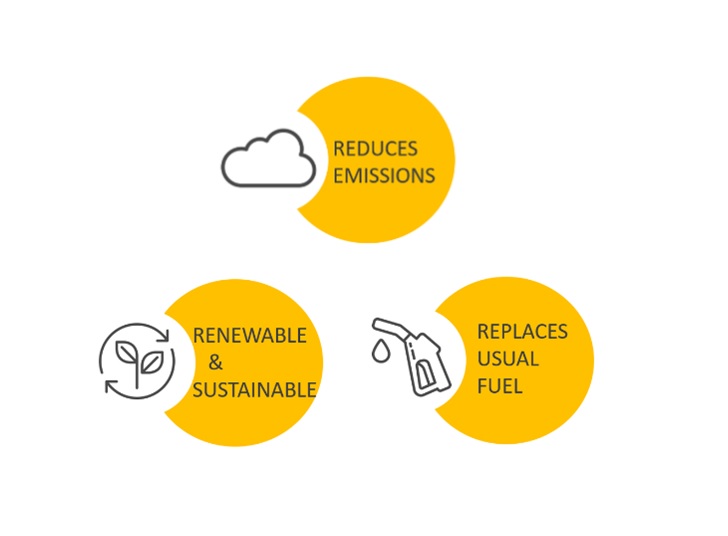In order to enhance the company’s ESG policy and to support the needs of their customers, HVO (Hydrotreated Vegetable Oil) is now authorized for use on all Haulotte internal combustion (IC) machines. The switch from diesel to HVO is an opportunity to significantly reduce CO2, NOx and particle emissions. Haulotte customers now have the choice to fill their machine with diesel or HVO100. This oil is mainly found in Europe. Some countries such as Finland & UK, have put in place tax incentives to promote this greener fuel.
What is HVO?
Hydrotreated Vegetable Oil (HVO) is a renewable and environmentally friendly fuel. HVO is made from 100% sustainably sourced renewable raw materials such as waste and residue fat fractions coming from food industry, as well as from non-food grade vegetable oil fractions. It results in important reduction of greenhouse gas emissions over the fuel’s life cycle when compared with fossil diesel.
The outcome is a renewable diesel which has a similar chemical composition to fossil diesel. It is fully compatible with all our Internal Combustion engines.
What are the advantages of HVO?
- High-quality fuel with no compromise on engine performance
2. Environmental benefits:
- CO2 reduction by up to 90% over the fuel’s life cycle compared to fossil diesel,
- Particles emissions reduction by up to 33% during combustion. The particle filter sees less demand and stays clean longer,
- NOx reduced by up to 6% during combustion,
3. Engine manufacturer warranty is preserved.
HVO, for which Haulotte machines?
All Haulotte engines, including Range extenders allow the use of EN15940* compliant HVOs. Meaning that HVO100 can be used on all Haulotte IC machines, even those delivered in the past.
Do not confuse FAME & HVO
Renewable diesel, or HVO, is sometimes confused with biodiesel or FAME (Fatty Acid Methyl Ester). The main differences between them are found in their chemical compositions:
HVO is produced through a hydrotreatment process. The result is a fuel with a similar chemical composition to fossil diesel. This chemical resemblance enables renewable diesel to be used in diesel engines in up to a 100% concentration, or to be blended in any ratio with fossil diesel. It does not require any engine modification to be used.
Biodiesel such as FAME has a different composition than fossil diesel and they cannot act as a substitute for each other. The maximum permissible concentration of a FAME biodiesel in a blend with fossil diesel is 7%. A FAME portion above 7% requires modification of the engine.

